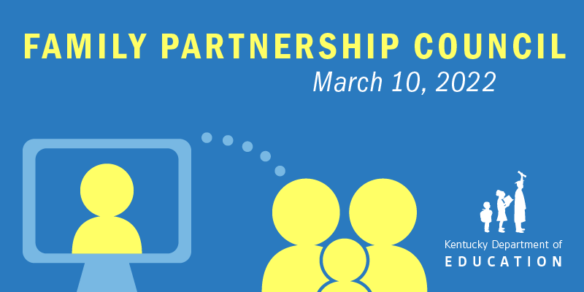
The Kentucky Department of Education’s (KDE’s) Family Partnership Council (FPC) discussed family engagement and the council’s core beliefs during its first meeting on March 10.
FPC, previously known as the Commissioner’s Parent Advisory Council, serves in an advisory role to KDE and provides input regarding topics of interest to families, such as ways that families and communities can assist schools in ensuring a higher level of achievement for all students.
The council consists of members from all backgrounds, including parents, teachers, student advocates and community partners.
Brooke Gill, senior director of family engagement policy and practice at the Prichard Committee and FPC council chair, shared the mission and purpose of the FPC, and opened discussion about the goals of the council.
Lauren Mitchell, a parent director at the Kentucky Association of School Councils, said it’s important for parents and families to have a seat at the table. She said she wants the council to focus on higher achievement for all students, but understands that teachers are under a lot of pressure and lack resources.
“Bringing issues to the table to make sure people are aware of what families may be dealing with is a big focus for me,” said Rhonda Logsdon of the Kentucky Special Parents Involvement Network.
Gill detailed the four core beliefs of the council, which include:
- All families have dreams for their children and want the best for them;
- All families have the capacity to support their children’s learning;
- Families and school staff are equal partners; and
- The responsibility for cultivating and sustaining partnerships among school, home and community rests primarily with the school staff, especially school leaders.
Members were able to share what beliefs they felt strongly about or with what they took pause.
Julia Staton, social-emotional learning (SEL) specialist at the Kentucky Educational Development Corporation, said it’s important to recognize that some parents don’t have the resources to support their children, such as access to adequate technology, but believes all parents want the best for their children.
The council also voted on a list of agreements and shared ways to encourage relationship building among educators, families, and communities.
Gill urged members to be the voice of their communities, search for solutions and collect examples of the positive changes they see to share at their next meeting on June 9.



Leave A Comment